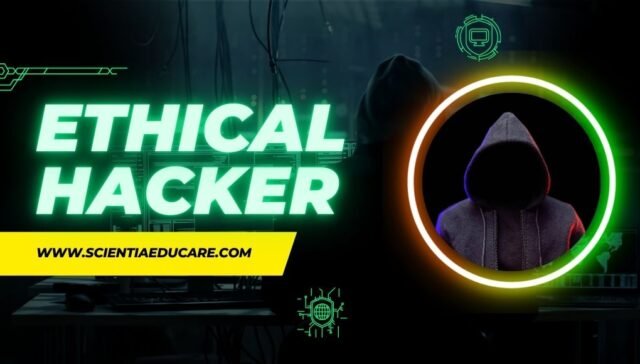How to Become a Certified Ethical Hacker
In today’s digital age, cybersecurity has become a critical concern for organizations worldwide. As cyber threats evolve, the demand for professionals who can anticipate, identify, and mitigate these risks has surged. One such role is that of a Certified Ethical Hacker (CEH). This article provides a comprehensive guide on becoming a CEH, exploring the necessary steps, job prospects, and educational opportunities.
Become a Certified Ethical Hacker,
Steps to become a certified ethical hacker,
Best ethical hacking certification programs,
Certified ethical hacker exam preparation tips,
Top ethical hacking courses online,
Career opportunities for certified ethical hackers
Understanding Ethical Hacking
Ethical hacking involves the authorized practice of bypassing system security to identify potential data breaches and threats in a network. Ethical hackers aim to investigate systems and networks for weaknesses that malicious hackers could exploit. They use this information to improve the security posture of an organization.
Why Pursue a Career as a Certified Ethical Hacker?
The role of a CEH is pivotal in safeguarding sensitive data and maintaining the integrity of IT systems. Here are some compelling reasons to consider this career path:
-
High Demand: With the increasing frequency of cyber-attacks, organizations are actively seeking professionals skilled in ethical hacking to bolster their defenses.
-
Competitive Salary: Ethical hackers are well-compensated for their expertise. For instance, in India, the average salary for a CEH is approximately INR 599,000 per annum.
-
Dynamic Work Environment: The ever-evolving nature of cyber threats ensures that ethical hackers face new challenges regularly, keeping the work engaging and fulfilling.
Steps to Becoming a Certified Ethical Hacker
Embarking on a career as a CEH involves a structured approach:
1. Educational Foundation
While a formal degree isn’t mandatory, having a background in computer science or information technology can be beneficial. Many ethical hackers start by obtaining a computer science degree.
2. Gain Relevant Experience
Before pursuing certification, it’s advisable to acquire practical experience in IT or network security. This hands-on experience will provide a solid foundation and context for advanced ethical hacking concepts.
3. Obtain Necessary Certifications
Earning relevant certifications is crucial. The Certified Ethical Hacker (CEH) certification by EC-Council is a widely recognized credential in the field. To be eligible for the CEH exam, candidates typically need at least two years of work experience in the information security domain.
4. Enroll in Training Programs
Participating in official training programs can enhance your knowledge and skills. EC-Council offers structured courses that cover various aspects of ethical hacking.
5. Pass the CEH Examination
The CEH exam consists of 125 multiple-choice questions to be completed in 4 hours. It assesses knowledge in areas such as network reconnaissance, network access, and maintaining network access.
6. Maintain Certification
After obtaining the CEH certification, it’s essential to maintain it by earning 120 EC-Council Continued Education (ECE) credits within three years.
Job Prospects for Certified Ethical Hackers
The demand for ethical hackers is global, with numerous opportunities across various industries. Here are some potential job roles:
-
Penetration Tester: Conduct authorized simulated attacks on computer systems to evaluate security.
-
Information Security Analyst: Monitor and protect an organization’s computer networks and systems.
-
Security Consultant: Advise organizations on best practices and strategies to secure their IT infrastructure.
-
Network Security Engineer: Design and implement secure network solutions to defend against hackers and cyber-attacks.
For job opportunities, consider exploring platforms like Indeed and LinkedIn Jobs.
Top Institutions Offering Ethical Hacking Courses
Several esteemed institutions worldwide offer courses in ethical hacking:
-
EC-Council University (USA): Offers a Master of Science in Cyber Security with a focus on ethical hacking. Visit Website
-
Norfolk State University (USA): Provides a Certified Ethical Hacker course that immerses students in the hacker mindset with hands-on activities. Visit Website
-
Idaho State University (USA): Offers an accredited CEH course to prepare students for the Certified Ethical Hacker Exam 312-50. Visit Website
-
University of Maryland, College Park (USA): Offers a course titled “Cybersecurity for Everyone” on Coursera. Visit Website
-
Johns Hopkins University (USA): Provides an “Introduction to Ethical Hacking” course on Coursera. Visit Website
Further Reading
To deepen your understanding of ethical hacking, consider exploring the following resources:
Conclusion
Becoming a Certified Ethical Hacker is a rewarding journey that combines technical expertise with a commitment to safeguarding digital assets. By following the steps outlined above and continually updating your skills, you can play a pivotal role in the cybersecurity landscape, protecting organizations from evolving cyber threats.














